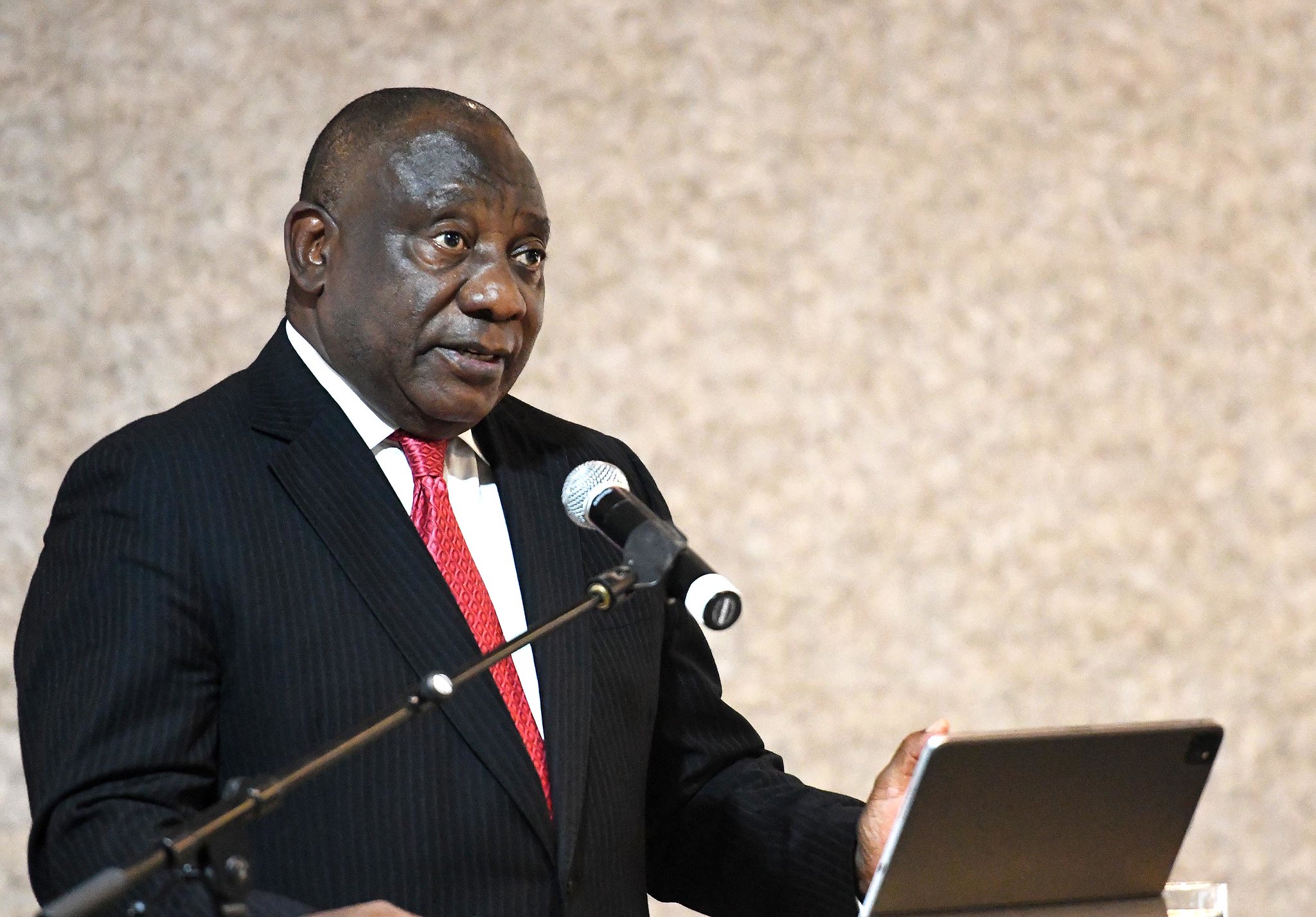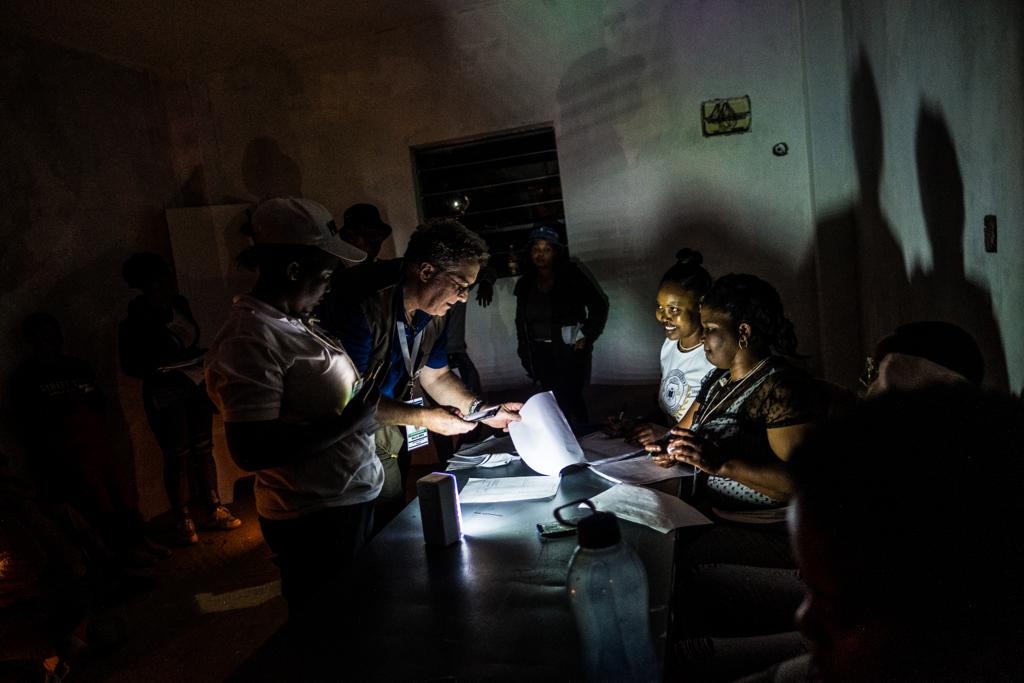News
Ramaphosa's Weak Government Dangerously out of Touch with Africa
Whatever the predisposition of executives for high-profile handshakes and vacuous summits, SA's obduracy and partiality to Russia's model can only affect investment, trade and growth.

Research Director, The Brenthurst Foundation

Director, The Brenthurst Foundation

Perhaps it is a symptom of how the world, under the spell of social media, no longer pays attention to facts. The perception out there has somehow gained hold that Africa is behind Russia's invasion of Ukraine and its annexation of Ukrainian territory.
Nothing could be further from the truth. The actual statistics tell a very different story. This week, the UN General Assembly voted on a resolution which “condemns the organisation by the Russian Federation of so-called referendums within the internationally recognised borders of Ukraine” and “the attempted illegal annexation” of four of Ukraine's regions following referendums in these partially occupied territories.
Not a single African country voted against this resolution. Even the bellicose Eritrea, the North Korea of Africa, which depends heavily on Russian support for its military adventures in the Horn of Africa, and which usually votes in lock-step with Russia, chose to abstain.
Shameful record
No fewer than 30 of the continent's 54 countries voted in favour of the resolution, while only 19 abstained. It is a matter of shameful public record that South Africa was among those that abstained.
This and its vote in March when called on to condemn the invasion, put it at odds with its own Constitution, the continent and its major economic powerhouses, Egypt, Nigeria and Kenya, all of which voted to condemn Russia.
Let's be clear. A majority of 55% of African countries voted to condemn the annexation while 0% voted with Russia. Only 35% of Africa's countries voted to abstain. The remaining 10% did not vote.
Of the African countries that voted one way or the other, 30 of 49, or some 61%, voted to condemn Russia.
Africa's 30 votes were among those of 143 nations that voted to condemn Russia's annexation, making up an overwhelming two-thirds majority of the world.
Among those bastions of democracy on the continent which chose to abstain alongside South Africa were the Eswatini monarchy, the Central African Republic, Eritrea and Sudan, all of which are a UN resolution away from global pariah status themselves.
What was particularly peculiar was South Africa's attempt to explain away its misalignment with Africa and the world. Quoted in Daily Maverick, Mathu Joyini, South Africa's ambassador to the UN, said that South Africa actually believed Ukraine's territorial integrity was “sacrosanct” and that it rejected any action by a state which violated the UN Charter.
Despite these strong beliefs, South Africa abstained because it did not like “some elements” of the resolution, which would not contribute to a peaceful solution to the conflict. This sort of mealy-mouthed statement is what goes for foreign policy in South Africa these days.
Ukraine's Foreign Minister, Dmytro Kuleba, said of South Africa's position: “We don't understand it. I cannot find one single rational argument. It's about the fundamental, universal principle of territorial integrity. I really cannot explain rationally why South Africa abstained. And why relations with Russia are more important than anything else.”
Northward drift in continental leadership
Continental leadership on international affairs has been drifting northwards since the end of the Mandela and Mbeki eras and the drive for an “African Renaissance”.
These days the world looks to Nigeria, Kenya, Senegal and Egypt for serious commentary on global affairs.
In perhaps the most impactful speech by an African leader in recent times, Kenya's ambassador to the UN, Martin Kimani, said on the eve of Russia's invasion of Ukraine in February this year: “Kenya is gravely concerned by the announcement made by the Russian Federation to recognise Donetsk and Luhansk regions of Ukraine as independent states.
“This situation echoes our history. Kenya, and almost every African country, was birthed by the ending of Empire. Our borders were not of our own drawing. They were drawn in the distant colonial metropoles of London, Paris and Lisbon with no regard for the ancient nations that they cleaved apart.
“We believe that all states formed from empires that have collapsed or retreated have many peoples in them yearning for integration with peoples in neighbouring states. This is normal and understandable. After all, who does not want to be joined to their brethren and to make common purpose with them? However, Kenya rejects such a yearning from being pursued by force.”
Kimani demonstrated that there was no contradiction between Africa's long history of anti-colonial struggle and opposition to the imperial ambitions of Russia. It was a moment of leadership as much as it was an expression of realpolitik — with all manner of national and religious fault lines potentially opening up a Pandora's box of secessionist and irredentist claims.
Presumably, South Africa does not want to rock the Russian boat and the ongoing and future funding deals this promises, preferring the oligarchic model of enrichment and authoritarianism over the liberal democratic alternative. Or perhaps Pretoria believes that peace might follow through partially satiating Russia's territorial appetite. The swallowing of principles of territorial integrity and international law to such expediency is not, of course, what eventually won the struggle against apartheid.
As one senior member of the Ukrainian armed forces, wounded in the defence of Mariupol, put it in response to such an offramp from the conflict: “If you want to give Russia some of your territory, it's your choice. We are not.”
Voting with pariah states
Meanwhile, South Africa has inexplicably chosen to vote with pariah states and autocracies and has been unwilling to place democratic values and their promotion at the centre of its agenda.

Addressing the UN in September, the minister of international relations and cooperation, Naledi Pandor, failed to mention Ukraine, referring only obliquely to an unspecified “war in Eastern Europe” which she described as a distraction from the world's true priorities.
These she enumerated as follows: “Our greatest global challenges are poverty, inequality, joblessness and feeling excluded.” Needless to say, this speech, speaking as it did of helplessness and weakness, sank without a trace as South Africa continued its limp towards irrelevance on the global stage.
Such statements of political intent also do harm to our relationship with most of our major trading partners, who should be taking a wary view of South Africa's reliability and its commitment to the rule of law.
Until now, Western capitals have preferred to believe that they might bring the ANC alongside by being nice, explaining recent moves by the White House and Buckingham Palace to host President Cyril Ramaphosa.
This is the interstate version of the domestic Ramaphosa thesis: that things could be much worse without him (which may be true), without asking whether his presence will ever make things better (which is unlikely, based on the evidence so far).
Defenders of this kicking-the-can-down-the-road diplomatic approach are either severely self-occupied or don't really care enough about South Africa's long-term fortunes to more carefully calibrate policy with relations as they are rather than as they imagine them to once have been.
Inevitably, whatever the predisposition of executives for high-profile handshakes and vacuous summits, South Africa's obduracy and partiality to Russia's model can only affect investment, trade and growth.
What is now emerging is a very damaging misalignment with Africa which threatens to further isolate the country from the continent's leading economies, the countries with whom we should be building partnerships as this — and not the extractive ambitions of Pretoria's Russian pals — is the gateway to the country's economic growth.
Instead, populists are permitted to run rampant, killing and assaulting “foreigners” from the rest of Africa while South Africa limps along five steps behind the continent's growing voice for democracy and progress on the world's stage.
This article originally appeared in the Daily Maverick
Image: GovernmentZA Flickr

